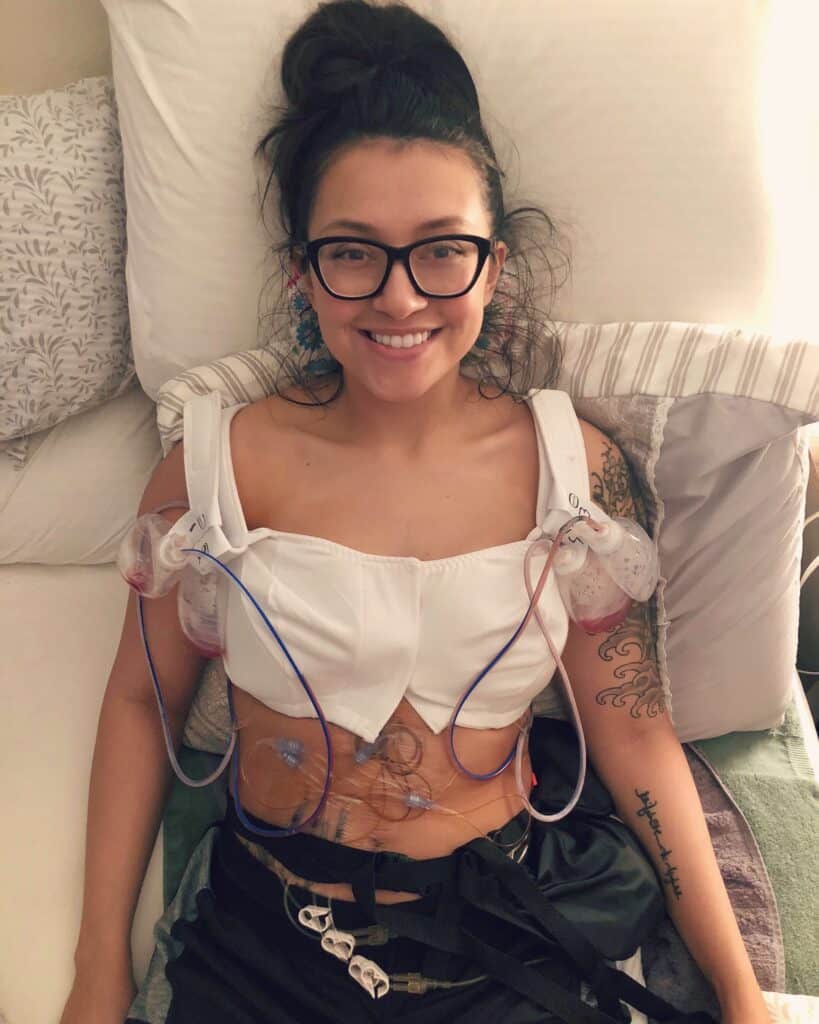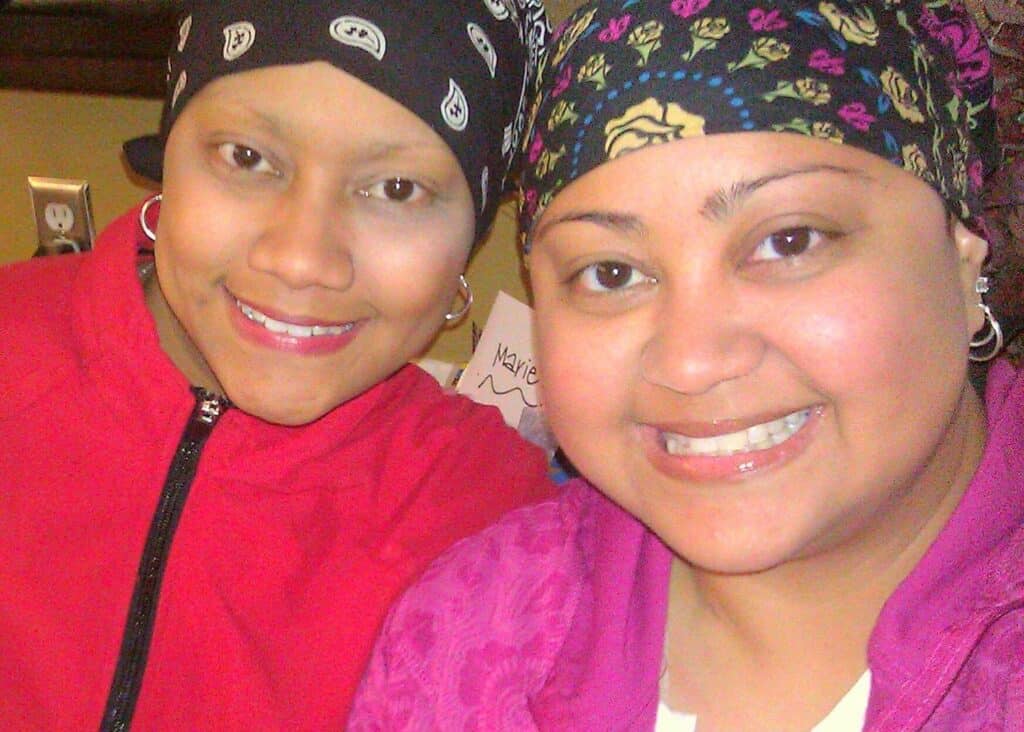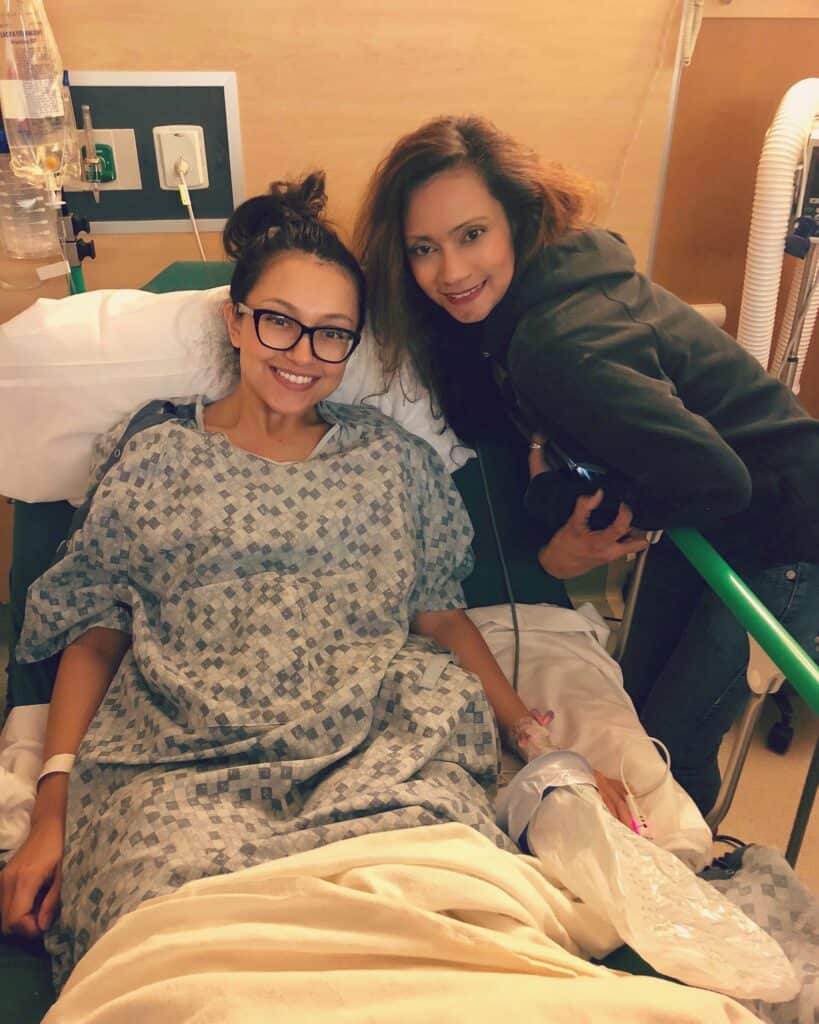
Three generations on the maternal side of Taylor Olsson’s family have been affected by breast cancer. This is their story in Taylor’s own words.
This all started with my maternal grandmother, Liz. She and my grandfather, Tony, are from the island of Guam. They were married for 25 years and had four children together, daughters Rene, Debbie and Lisa, and a son John.
My grandmother was diagnosed with breast cancer when she was 40 years old. She battled the disease for four years and ultimately passed away when she was 44.
My mother, Debbie, was diagnosed with stage 1 breast cancer when she was 39 years old. I was in high school at the time. My mom underwent treatment for a year and was in remission for almost 10 years. When she was 48, she was diagnosed with metastatic breast cancer. I was 28 and became my mother’s caregiver, as I am her only child. My mom fought the toughest battle I’ve ever seen for nine months, and she succumbed to the disease in January 2022.
Her sister Lisa, my aunt and my second mother, was diagnosed with stage 3 breast cancer at 33 years old, only three months after my mom received her first diagnosis. The two sisters battled breast cancer together at the same exact time. My aunt battled the disease on and off for roughly six years, before she passed away in August 2017. She was just 39.

After watching the three most important women in my life fight this tragic disease, I was urged at 18 to test for the BRCA gene mutation based on my family history. I tested positive for a BRCA2 gene mutation. But because I was so young at the time, the breast cancer surgeon suggested I wait until I was 25 to do anything about this.
In the blink of an eye, I was 25 years old, seeing my gynecologist regularly and doing breast exams backed with so much anxiety. I also discovered I had incredibly lumpy breasts and was getting biopsies left and right for precautionary measures. I was sick and tired of getting MRIs, biopsies and ultrasounds constantly, so I officially decided to move forward with a prophylactic bilateral mastectomy and reconstruction.
In September 2018, my very first surgery in my life was a bilateral mastectomy, performed by the surgeon who did my mom’s and aunt’s mastectomies. Because I was young and healthy, my recovery, although very challenging, was swift.

I was back to work after a month of recovery and exactly 60 days later, my reconstruction was done. I am lucky and grateful that this process was so smooth for me, as I know the obstacles and challenges many women face who have these surgeries and actually have a breast cancer diagnosis.
I am now five years post-mastectomy and reconstruction and I can honestly say that this was the best possible decision for my health and my future that I could have made. I was even more convinced that this was the right decision after being a caregiver for my mom and watching her fight valiantly and fade slowly over the course of nine months. Now, at 30, I am the healthiest I’ve ever been. I see my gynecologist once a year and see a gynecological oncologist twice a year, as well as get bloodwork to test for cancer markers as a preventive measure.
Breast cancer has made its way through my family like a forest fire. It’s changed the way my family looks and it’s changed the way my family thinks. It feels as if we have been grieving for the last 25 years.
Nothing can prepare you for a cancer diagnosis or a BRCA gene mutation diagnosis. Both feel like a death sentence (one more so than the other). But there is an entire community of women and men who have been through this sort of thing, and the more you surround yourself with these kinds of brave people, as well as loved ones who want to support you, the easier this can be.
The best advice I can give to survivors, previvors, supporters and caregivers is to share your life with friends, family and loved ones, talk about your diagnosis, talk about how scared you are for yourself or your person, talk about how difficult it is to be a caregiver for a loved one, talk to a therapist regularly, research the disease and learn as much as you can – and take every day as they come. Always hope for the best, but try to be prepared for anything. There are no rules to grief.
Statements and opinions expressed are that of the individual and do not express the views or opinions of Susan G. Komen. This information is being provided for educational purposes only and is not to be construed as medical advice. Persons with breast cancer should consult their healthcare provider with specific questions or concerns about their treatment.
Learn more about breast cancer screening.



